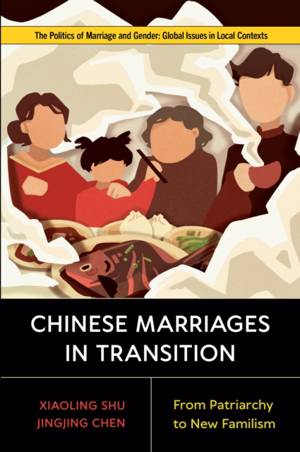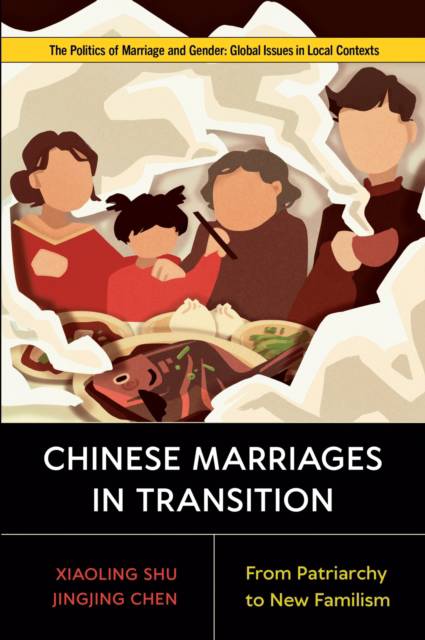
- Afhalen na 1 uur in een winkel met voorraad
- Gratis thuislevering in België vanaf € 30
- Ruim aanbod met 7 miljoen producten
- Afhalen na 1 uur in een winkel met voorraad
- Gratis thuislevering in België vanaf € 30
- Ruim aanbod met 7 miljoen producten
Zoeken
€ 48,95
+ 97 punten
Uitvoering
Omschrijving
Outdated models of Chinese gender roles, marriage, and family transitions portray these changes as streamlined and unidirectional, from traditional to modern, public to private, collective to individual. Chinese Marriages in Transition documents the complex, nuanced, and multidirectional nature of these cultural transformations. Using complex and large-scale historical national data as well as comprehensive data from multiple countries, Xiaoling Shu and Jingjing Chen demonstrate that, while the second demographic transition is unfolding in many advanced Western societies, it is not necessarily a normative form of societal transition. Working instead from a framework of "new familism," Shu and Chen show that Chinese new familism consists of both old and new values, including the persistence of some traditional beliefs and practices, accompanied by a transition to modern perceptions of gender, and adaption to some modern forms of family formation.
This book is freely available in an open access edition thanks to TOME (Toward an Open Monograph Ecosystem)-- a collaboration of the Association of American Universities, the Association of University Presses, and the Association of Research Libraries--and the generous support of the University of California, Davis. Learn more at the TOME website, available at: openmonographs.org.
Download the open access book here.Specificaties
Betrokkenen
- Auteur(s):
- Uitgeverij:
Inhoud
- Aantal bladzijden:
- 218
- Taal:
- Engels
- Reeks:
Eigenschappen
- Productcode (EAN):
- 9781978804661
- Verschijningsdatum:
- 15/09/2023
- Uitvoering:
- Paperback
- Formaat:
- Trade paperback (VS)
- Afmetingen:
- 155 mm x 229 mm
- Gewicht:
- 344 g

Alleen bij Standaard Boekhandel
+ 97 punten op je klantenkaart van Standaard Boekhandel
Beoordelingen
We publiceren alleen reviews die voldoen aan de voorwaarden voor reviews. Bekijk onze voorwaarden voor reviews.











